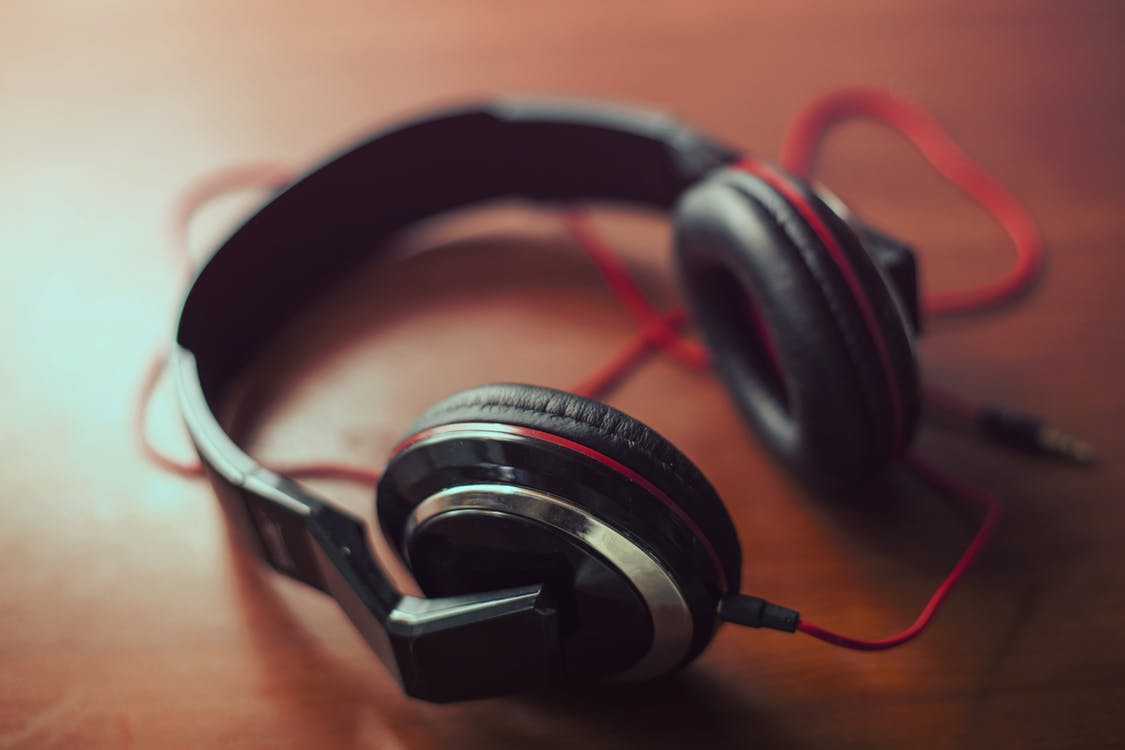That’s a good question! Constantly listening to music without interruption is not the best idea for your ears. Especially when excessive use of headphones at high volumes may lead to increase in hearing loss.
But let’s not start so negatively. In fact we got the perfect addition to your noise cancelling headphones for extra safety. It’s a noise cancelling app called Krisp that can help you preserve hearing even when you’re taking calls and participating in remote conferences. It mutes background noise both from you and others and you can use it with any noise cancelling headphones.
[demo]
So what about noise cancelling headphones? Are noise cancelling headphones safe ?
The short answer — yes.
But like any other question, this one also has two sides. So keep reading to learn more about the safe and risky sides of noise cancelling headphones.
Let’s start by understanding what is noise cancellation and how does it work in headphones.

How Noise Cancelling Headphones Work?
Most of the headphones use a sophisticated active noise cancellation to counteract noise in your environment. In simple terms, noise cancelling headphones fight noise with other noise. These headphones can reduce a variety of background sounds such as the roar of an airplane engine, rumble of train, highway noise and others.
They do this by generating an “anti-noise” sound that cancels out the unwanted background noise. Noise cancelling headphones have a built-in audio processor that detects sounds and produces the opposite wave pattern.
Not all headphones use this active noise cancellation, though. Some of the headphones block out external sounds because of their built-in isolating characteristics and the materials they’re made from.
In fact there are various types of noise cancellation and you should choose the one that suits your needs.
For a comprehensive guide, refer to headset information that includes all the details about headsets, their specifications, and characteristics to make an informed decision when choosing the headphone with noise cancellation feature.
Are Noise Cancelling Headphones Safe or Dangerous for Health?
When the noise cancellation is turned on you don’t hear complete silence. There is always this slight hissing that you can hear and it makes some people feel dizzy. But this doesn’t damage your hearing or health. Unlike mobile phones, noise cancelling headphones don’t emit radiation and don’t pose a potential threat that may arise from frequent use of a mobile phone.
However, if this hissing sound is irritating for you, then you can find another pair of noise isolating headphones that simply block the outside sounds by creating a strong seal around your ears. Such headphones don’t actively cancel noise by producing “anti-noise” waves, but rather have multiple layers of foam and good cushions which keep noise from entering into your ears.
For those unsure which option to choose, a thorough headset comparison can help you find the best fit for your needs.
By the way, noise cancelling headphones aren’t the only way to cancel noise in noisy, distracting environments.
If you’re often on a conference call, then try this app that will mutes background noise during your calls. It mutes noise from both sides of the call, so neither you nor your calling opponents have to worry about noise anymore.
So as you see, noise cancelling headphones aren’t harmful for your health.
In fact, these headphones might actually be beneficial for your health.
How are Noise Cancelling Headphones Beneficial for Health?
If you live or work in a noisy environment, and have to deal with constant noise then noise cancelling headphones may actually protect your hearing. Being frequently exposed to loud noises such as airplane engines, rumbling trains, jackhammers or even simply traffic noise for extended periods of time can be quite dangerous to your hearing and health. There are different types of noise which differ in frequency (pitch) and amplitude (loudness), and thus have different effects on your hearing.
Loud noises can be harmful for your health and damage your hearing, interfere with sleep, raise stress levels and cause headaches.
Constant low-level noise is as much dangerous for your health as loud noises are. While low-level noise may not cause hearing loss but can be harmful in other ways, especially if constant. People who live in noisy areas or near all-day noise from cars have higher levels of the stress hormone than those who live in quiet areas. Elevated cortisol has been linked to high blood pressure and high cholesterol, which increase the risk for heart diseases.
Studies indicate the harmful effects of low-level noise on health. A study published in the Journal of the Acoustical Society of America found that children who live in neighborhoods with constant low-level noise had higher levels of the stress hormone than those who lived in quieter neighborhoods

Wearing noise cancelling headphones protects you from the potential problems that prolonged noise exposure may cause. In fact, noise cancelling headphones have multiple benefits.
Since noise cancelling headphones neutralize surrounding noise, you can enjoy your music without turning up the volume so high that it poses a risk to hearing.
There are specially designed headphones that protect hearing from every type of noise. So it’s important to find the right noise cancelling headphones and make sure that they are best suited for you.
How To Prevent Hearing Damage When Using Headphones?
The main advice to prevent hearing damage while using headphones — is to keep the volume moderate. Most of the health problems occur because of high-level volumes. Is noise cancelling bad for your ears? Contrary to concerns, noise-cancelling headphones are generally safe for your hearing and health, as they primarily work to block out external noise rather than emitting harmful radiation.
How to know which volume is moderate? A good rule of thumb will help you with this one.
Keep your volume lower than the sound of a typical vacuum cleaner which is around 70 decibels. The Occupational Safety and Health Administration (OSHA) advise that the safe volume level is below 85 decibels.
Another clue that the volume is too high is what happens when you take the headphones off. Do sounds seem muffled or your ears buzz? If the answer is yes, then you should turn down the sound.

So What’s the Bottom Line?
Noise cancelling headphones themselves don’t pose any risk for your health. Noise cancellation technology in the headphones works well without any adverse consequences. They don’t emit any radiation whatsoever, so you shouldn’t worry about these headphones causing issues to your health.
On the contrary, noise cancelling headphones protect you from the surrounding sounds of this noisy world. They block out the noises and take care of your hearing, so you can concentrate better and enjoy your noise-free time.
The only risk comes from the volume level. Higher volumes pose a potential danger for your hearing and health, so always keep it at moderate levels.
Now since you know that noise cancelling headphones are safe for your health, go and enjoy listening to your favorite music. Just be mindful of the volume level.
P.S. Remember the rule of thumb: not higher than the vacuum cleaner!


